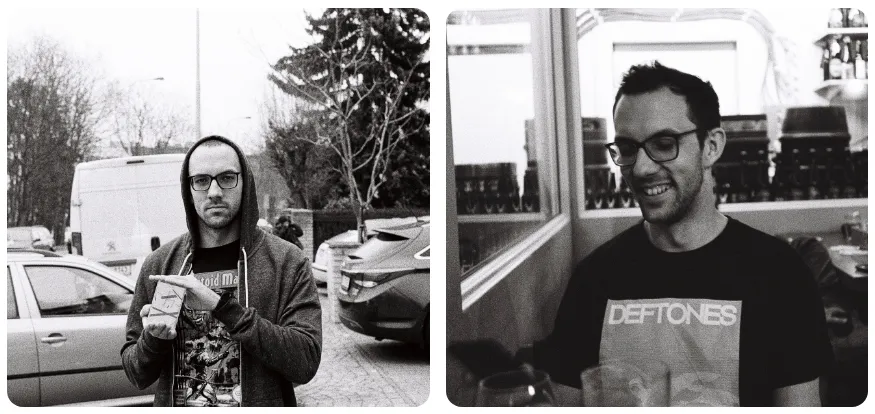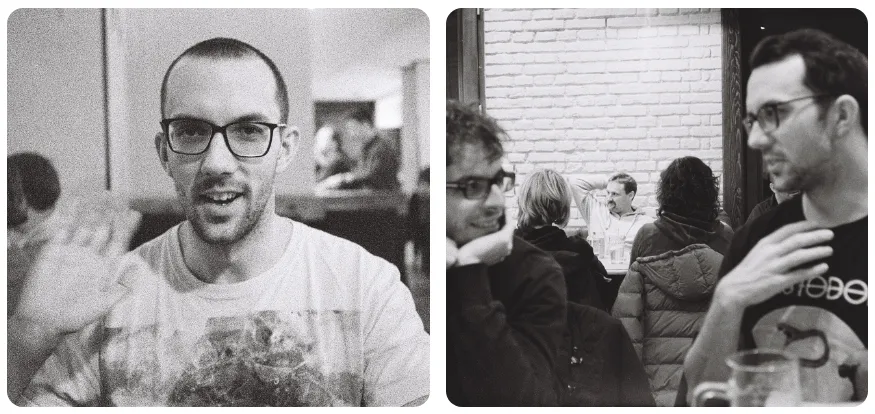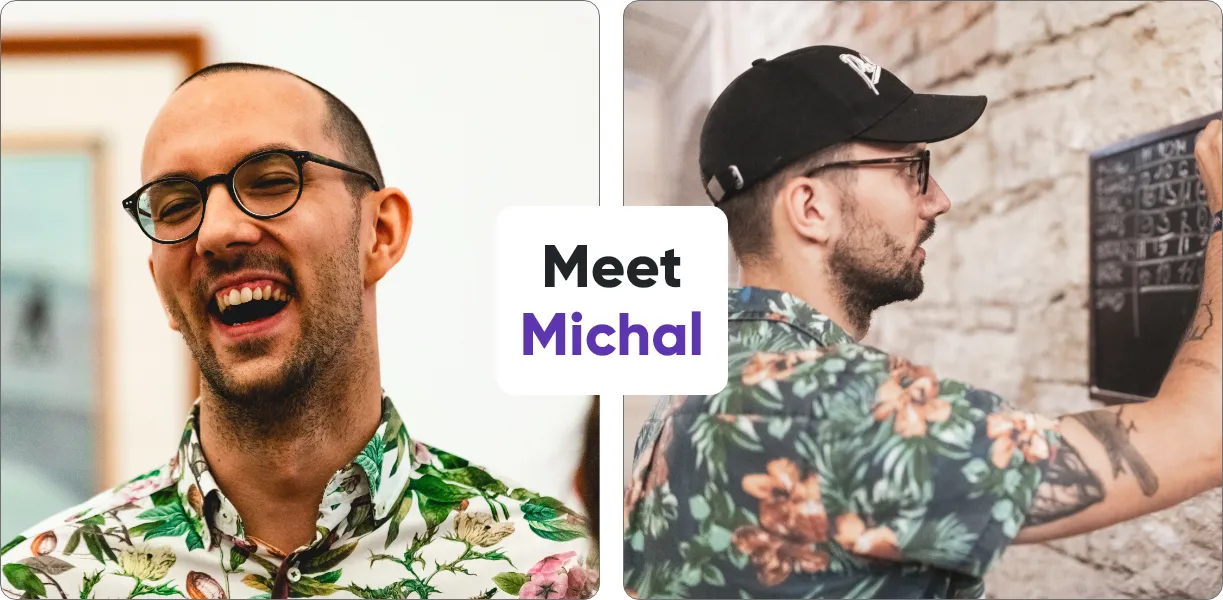What does it take to be a successful DevOps Engineer at Ataccama? Meet Michal, our IDP champ who stepped up and learned new skills in a new field and continues to grow on his team even two years later. See how he switched careers and what he thinks about his journey today!
Hi Michal! Let’s kick things off with your current role — how did you get to Ataccama, and what do you do here?
“I heard from a lot of people how accommodating Ataccama had been to them, telling them to take their time and put life first. That’s something I really appreciate.”
Right now, I’m a DevOps Engineer, which means I make the developers’ job easier. I take care of all the tools, and I help them build and test their stuff. It’ll be two years in November since I started. I’d been an IT professional my entire career — I was the guy answering people’s questions, like “How do I print a PDF?” and “The toner in the printer is empty, help me!” I did that for 10 years, and by the end I felt so burnt out that I knew I couldn’t do it anymore. In reality, I’d always wanted to be a developer. I like to make things, to be creative, and solve problems.
However, being a full-on developer just never worked out for me. I must have spent hundreds of dollars on courses and it never clicked. On the other hand, staying in a “safe” job didn’t provide me with the right motivation. I didn’t know what to do, so I joined a video game studio where I started to look more at the developer side of things. It was a startup, so you needed to hit a lot of nails on the head — it wasn’t all fun and games. But I learned a lot and it was the first step toward something better.
After about a year and in the middle of the pandemic I was already fed up, and a high-school buddy of mine, Radek Jezdik (who still works here) told me about an opening. When I started interviewing, I found out that I knew like, eight people in Ataccama, so I had people to vouch for me. :) Still, I wasn’t sure I was good enough. In the end Dominik Novozamsky called me personally to convince me to join, saying they’re not looking for a “made man,” there are people to help me learn the ropes. I was scared, but I joined a bunch of really great people.
Also, I had a baby just after joining, and I never imagined it would go as smoothly as it did. Afterwards, I heard from a lot of people how accommodating Ataccama had been to them, telling them to take their time and put life first. That’s something I really appreciate.
And how has your role changed since you joined?
Well, that’s a bit of a funny story, because I was almost rejected. :) I originally interviewed for a position on the cloud team, and I felt like I was fumbling all the questions. So I apologized for wasting their time, since it seemed clear that I just didn’t make the cut.
A week later, I got another call that there’s an open role that’s more about building the product. It was just me and another wizard, Martin Kvapil, who’s been doing all this magic behind the scenes to deliver the product for the past 12 years. I was supposed to be his right hand so I joined, feeling like a newborn.
The thing with Ataccama is, there are so many spots to fill that even if you’re not the right fit at the start, they’ll find another role where you can be of use. Not to mention that the conditions are usually better than most other companies, even for juniors. And even though I wasn’t accepted for the initial role, they still saw potential in me.
But you have to start somewhere. And it was super hard at the start, I had to learn a lot of things from scratch. Luckily, Martin was extremely helpful. As a senior in the company he just knew how everything worked. Whenever I’d overthink something, he’d pull my attention back to what really mattered, where my time was most valuable.
Then Martin left the team to focus on the ONE Portal, and all of a sudden I was the new Martin. :) At the same time, I’d been integrating into the newly-formed Internal Development Platform, or IDP team, as a sort of Cloud guy, helping provide the platform for the developers.
It was at that point that I started doing the stuff I’d wanted to do, which was the entire reason why I changed jobs (and professions!). I have to call out Martin here, I wouldn’t be here without him. Giving me the chance, taking the risk, and now I’m a senior person on the team who’s been in it the longest. Before coming to Ataccama a lot of companies saw me as just cheap labor, because I was a junior and didn’t know so much. Like I was just supposed to keep bashing out code for little money, forever. But Martin, he had plans for me.
And is the IDP team still independent, or was it incorporated into the Infrastructure, Cloud and Operations Spaceport?
“The good thing about this is that whenever someone is facing some obscure, unknown issue, there’s a great chance you can find someone in ICOPS who knows about it and can help you.”
It was incorporated into the ICOPS team. There’s about 50 of us in ICOPS and it’s the biggest Spaceport. It’s so big because it has teams that specialize in certain areas, such as GitLab, building, releasing, or helping developers.
That’s what makes ICOPS different from other Spaceports — the sheer number of teams in it. The good thing about this is that whenever someone is facing some obscure, unknown issue, there’s a great chance you can find someone in ICOPS who knows about it and can help you. And ICOPS does go on missions, but they’re mostly operations because that’s what most of our ICOPS people do, and they need to be ready to fix something or intervene somewhere. Don’t get me wrong, the mission concept is still great — we wouldn’t be able to do our job without them. We’d still be bogged down just fixing stuff instead of spending part of our time inventing and implementing new things.
What kind of people is the Spaceport looking for right now?
Enthusiastic folks. More than laser-focused experts, we’re looking for people that are willing and ready to switch gears, jump on a problem, help us out and learn something in the process. So if you’re not scared of coding in Python for a month, and then switching gears to do infrastructure, drop us a line. We don’t have specific roles, we’re looking more for hands, eyes and brains. We’re looking for people who know some stuff, but more importantly, are flexible and open and willing to learn, to find their groove and to help out.
Let’s entice those people — what’s your favorite part about working at Ataccama?
We’re over 400 people today, but I remember when I joined, there were only 250 of us. Even then there was the same feeling, like this place is the best of both worlds. There’s this startup mentality — everyone gets down to it and gets stuff done, we’re agile, we don’t get bogged down with bureaucracy. At the same time, we’re a big company. There’s funding behind us and we have a lot of customers. So we have the stability of corporate, without the corporate culture.
It’s my first workplace with a culture department, a place where I can go and ask someone to take care of me. Plus, the Spaceport feels like a company within a company, it’s us just bouncing ideas off each other. Not to mention that when someone comes up with a better way of doing things, or something that will make our lives easier, they just go and do it. They don’t ask for permission.

And what do you think draws these kinds of people to us?
Well, as a Cloud and DevOps guy, I’d say it’s the product. The product is excellent and performing very well. A lot of people can see the potential in that. Plus, it helps that we have big-name customers, like T-Mobile or Heineken, brands that even your grandma knows. :)
Final question — what’s your favorite memory of Ataccama?
I had been working with Martin for a few months, just shadowing him and learning about the job. And one day, he said “You know what? You’re doing the next product release on your own.” I thought to myself “Ok, just chill, prepare yourself — here we go.”
And then, I just did it. There weren’t any issues that I didn’t know how to fix, everything went smoothly, the product was released and I did it all by myself, using everything I’d learned over the past months.
When the emojis under the Slack announcement started coming, it felt super awesome to get recognized. And that’s the point here in Ataccama — people don’t micromanage you, they just believe in you, that you can do your best without someone to hold your hand. But always available for any question or concern, 24/7. So you do have a safety net, but you also have the freedom to try and do something on your own. It’s the best exercise there is!
Want to work with some inspiring and supportive colleagues like Michal? Join his team!
Check out our open positions around the globe and see what fits you best. We can’t wait to hear from you!

